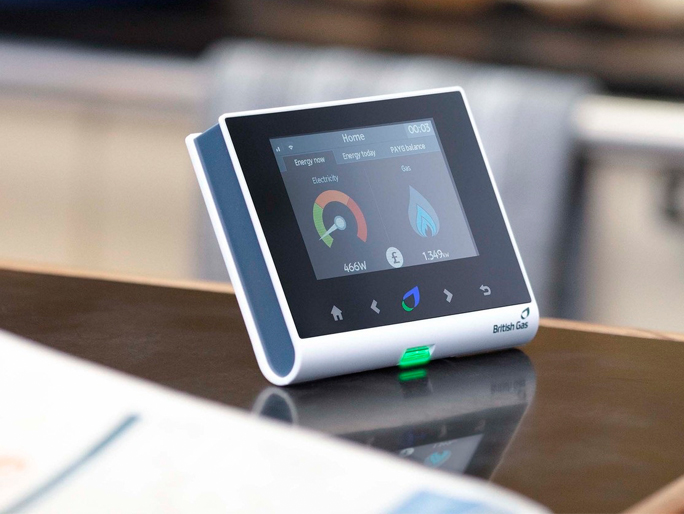We’ve all suffered because of poor mobile network coverage, but in commercial deployments where dealing with poor coverage isn’t an option, a solution to coverage issues is needed. While researching how to overcome coverage issues, I came across MultiNet SIM cards. They’re not widely used or known about, which is why I’ve written this blog post to explain what they are.
What is a MultiNet SIM card? A MultiNet SIM card is a SIM card that can connect to multiple networks. This ensures the best possible coverage as the SIM can automatically change to the strongest network in any area.
While some providers do offer MultiNet SIM cards that can be used in mobiles for voice and data, MultiNet SIM cards are often used for so much more than providing a voice and data service for mobile users. In this blog post, I’ll give some examples of where MultiNet SIM cards are used, how much they cost, and the advantages of them.
When Are MultiNet SIMs Usually Used?
You can use a MultiNet SIM in a mobile phone, but they’re primarily used in other devices and as part of other deployments. Here are some examples of where MultiNet SIMs would often be used.
Smart Meters
Good connectivity is absolutely essential for smart meters. If a smart meter doesn’t have a good connection, meter reading updates cannot be sent to suppliers – which can cause all sorts of bother.
This is why a lot of smart meters have MultiNet SIMs in them. Since MultiNet SIMs can connect to the strongest network at any given time, the SIM can connect to different networks as required. This means that the smart meter can continue to send meter readings and so on back to the energy supplier regularly.

Buses/Coaches
These days, a lot of buses and coaches have free WiFi available for passengers. Evidently, having a router with a SIM card in it is the best option for providing free WiFi to customers on a bus. The only issue is, buses and coaches often travel in areas where coverage might not be best on a particular network. How do you get around this? A MultiNet SIM of course!
MultiNet SIMs are particularly useful for buses and coaches travelling from Europe to the UK and vice versa. A MultiNet SIM can also switch over to networks in other places, such as countries in Europe. A MultiNet SIM will seamlessly move over to another network in Europe so passengers on the bus can continue to use the WiFi.

Wireless Access Control
Access control is often used in places where members of the public can’t just walk in. For example, an office building or a building site. In most cases, access control units will be connected to a control unit via a cable. If this is not possible for whatever reason, a wireless access control unit may be installed. For example, in a listed building where cabling cannot be installed without extensive planning and permission. Or somewhere where installing cable would be time-consuming and expensive.
A wireless access control system, such as a video intercom, will usually contain a SIM card to transmit the feed to person or department that manages access to the premises. In most cases, this can be a SIM card using any mobile network. However, it makes much more sense to use a MultiNet SIM that can switch between networks as required. The last thing you want is connectivity issues with your access control system considering how essential it is to enabling access to your premises.
Vehicle Trackers
Plenty of businesses will use vehicle tracking, as it can result in insurance discounts and easier employee management. These trackers will often contain SIM cards that send data to the system where all the tracking data is stored.
To ensure the tracker always works as it should, MultiNet SIM cards are often used. Vehicles such as HGVs will often travel up and down the country, potentially in areas where connectivity isn’t the best. In this case, a MultiNet SIM will automatically change to the strongest network in the area. This ensures that businesses don’t miss out on valuable tracking data.


How Much Do MultiNet SIMs Cost?
As you might have guessed, MultiNet SIMs usually cost more than a SIM card that runs on just one network. To give you an idea of how much MultiNet SIM cards cost, I spoke to 3 UK suppliers to find out what they charge.
| Data | Price |
|---|---|
| 500MB | £10.50 |
| 1GB | £16.50 |
| 2GB | £21.00 |
| 5GB | £42.00 |
| 10GB | £75.00 |
| 20GB | £142.50 |
| 40GB | £270.00 |
| 100GB | £637.50 |
What To Know About These MultiNet SIMs:
- Unsteered access to over 100 networks across over 30 countries (UK and Europe)
- Data Only
- 1 Month Contract
As you can see, the cost of a MultiNet SIM card rises quickly as you get to the higher amount of data. For this reason, MultiNet SIM cards aren’t very suited for use in a mobile phone or a mobile hotspot, simply because the price is so high.
The MultiNet SIM card pricing given above is an average based on pricing from 3 different suppliers. The pricing is for 1 month contracts. On longer contracts, the pricing can be much cheaper.
It’s also worth mentioning that if you need multiple SIMs, you can get aggregated data SIMs instead. Aggregated data SIMs can be much cheaper, as you have a pool of data that is shared between all the SIMs. So instead of paying for data on each SIM card, you will pay for one large amount of data that will be shared between your network of SIMs. Ultimately, this can work out much cheaper if you will need a lot of MultiNet SIMs for a large commercial deployment.
What Are The Advantages Of MultiNet SIMs?
I’m sure many wonder why they should invest in MultiNet SIMs. I believe I’ve answered that throughout this blog post, but here are some of the advantages of MultiNet SIMs that you might not already know.
Advantages Of MultiNet SIMs
- A strong connection – even on the move
- One SIM card – coverage in 172 countries
- Access devices remotely
A strong connection – even on the move
One network doesn’t provide adequate coverage when you’re on the move. For example, if you have an O2 SIM card in a tracker fitted to a vehicle, that won’t provide the coverage that you need while you are on the move. Fortunately, MultiNet SIMs are different thanks to their ability to automatically switch to a network in any given area.
Most MultiNet SIMs are unsteered, which means they will connect to the strongest network without any preference. If you have IoT devices that require a constant good connection, MultiNet SIMs are the only reliable option when you are on the move.
Depending on the provider that you go with, you can stay connected no matter where you are in the world. While some providers offer unsteered access to networks in the UK and Europe alone, other providers offer truly international SIMs that allow you to connect to networks in approximately 172 countries.
One SIM card = coverage in 172 countries
When I say a strong connection no matter where you are, I don’t just mean in the country that you primarily operate in. With a MultiNet SIM card, you can connect to hundreds of networks across the world in over 100 countries. Of course, this does depend on the provider that you choose. So if you’re using IoT devices in numerous countries, MultiNet SIMs are the way to go.
This is the ideal opportunity to refer back to the tracker example. Many companies operate global operations that might result in their drivers travelling between different countries. For example, you might have a driver travelling from the UK to Europe. It’s important to make sure your business still has tracking data no matter where your drivers are, and MultiNet SIMs can make sure you still get this data.
Access roaming devices remotely
Many businesses that use roaming devices need to be able to access the devices remotely. Since the device is always on the move, it is going to be difficult to regularly access it in person. If you know that you need to remotely access your devices, MultiNet SIMs will make this easier than ever. No matter where your devices are in the world, you’ll be able to access them.
Accessing your remote devices securely is also very important. Fortunately, you can set a fixed IP for the SIM. This allows for a secure two-way communication, so you can always access the data that you require without having to worry about any security concerns.
